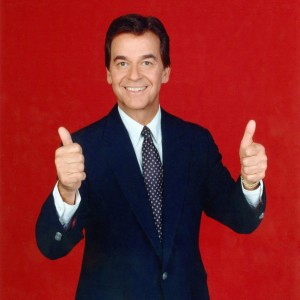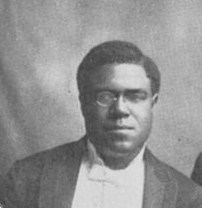Dick Clark and AMERICAN CHRISTMAS CLASSICS
Dick Clark, the late popular radio and television personality, had high praise for AMERICAN CHRISTMAS CLASSICS. An iconic figure who helped to pioneer the rock ‘n roll era with his popular American Bandstand, Mr. Clark was a gentleman of the highest order. I came to appreciate this quality about him after I had approached him in 2002 about promoting my newest Christmas music boxed collection. Mr. Clark was so impressed by this unique collection of American Christmas songs, which he described as “most impressive,” that he considered buying my company, Christmas Classics Ltd. This was especially true after he had learned Christmas Classics Ltd. had gotten the necessary 172 copyright clearances to produce and published the richly illustrated collection. They included 47 Christmas songs and carols lyrics, three CDs, and 91 images including five Norman Rockwell color plates. Eventually Mr. Clark reluctantly decided not to purchase Christmas Classics Ltd. In an e-mail he wrote, “I always felt your material had great promise,” but because of a busy business schedule he would not have the time to devote to the enterprise. Regardless of the fact we could not work together to promote AMERICAN CHRISTMAS CLASSICS, I think of Dick Clark each Christmas season, ever thankful for his praise of my unique American Christmas songs and carols collection. But more importantly I remember him for being a gracious and kind person to me, a newcomer to the music and publishing trade. Over the years his positive assessment of AMERICAN CHRISTMAS CLASSICS has proven to be true, one that has been echoed by newspapers, media, and customers alike.
Christmas Songs and Carols to Brighten the Holidays
Let us make this “a season to be jolly!” Despite our troubles, let us rekindle the fond memories of Christmas past for our parents, grandparents, and children. Let us touch the sentimental strings of carefree and youthful days that once consumed Baby Boomers and our military veterans.
Let us start with the idea of organizing some of our holiday festivities around the theme of singing carols and holiday songs. It doesn’t get better than hearing joyous Christmas songs while hauling in and trimming the Christmas tree.
Some familiar old-timers reminisce about the joy of Christmas songs and carols.
The late Andy Williams, a popular singer of the 1960s and 1970s, described celebrating the Christmas season in an interview with me several years ago. “It was such a great time,” Andy said, as he and his three older brothers used to go house to house singing carols and drinking eggnog in Wall Lake, Iowa.
“Those were the days when you knocked on a neighbor’s door and opened unlocked doors.” The talented singer who in later years starred at his Moon River Theater in Branson, Missouri, suggested it would be a nice thing to renew the tradition of caroling around the neighborhood, or one’s home town, “because it is such a wonderful thing to do.”
Della Reese, familiar to television viewers for her earthly role in the popular 1994-2003 program “Touched by an Angel,” wrote to me at the same time “I just love the way Christmas carols change the spirit and attitudes of us all.” An accomplished singer and ordained minister, in addition to her acting skills, she described “Silent Night” as a magnificent thought, and her favorite holiday tune as “Chestnuts Roasting on an Open Fire” sung by the mellifluous Nat “King” Cole. The irrepressible Della added, “In fact, I don’t really start my Christmas in earnest until I hear Nat sing “The Christmas Song.”
The late country and pop singer, Gene Pitney, enjoyed considerable success on both sides of the Atlantic through the mid-1960s with more than twenty Top 40 singles, including hits “Town Without Pity” and “Only Love Can Break a Heart.” In an e-mail Gene fondly recalled carving the turkey when his large family gathered for the holidays and the singing of Christmas carols. “I prefer religious carols,” he said, “that have not become jaded by commercial overuse. They represent the essential Christmas message.”
Take a cue from Andy, Della, and Gene. Start this holiday season with the idea of organizing your festivities around the theme of singing carols and holiday songs.
Celebrate with friends and family at home beside the fireplace or piano, or while trimming the Christmas tree, with traditional classics as “O Little Town of Bethlehem,” or “The Twelve Days of Christmas,” or singing such nostalgic holiday fare as “White Christmas,” “Have Yourself a Merry Little Christmas,” or “Rudolph the Red-Nosed Reindeer.”
Encourage friends to join in the singing of “Silent Night” and “We Wish You a Merry Christmas” in front of your neighbors’ city stoop or country home. Better yet, why not sing for our senior citizens at nursing home or an assisted care facilities, or at a food kitchen for the poor and homeless, or a military hospital for our aged veterans or wounded warriors? Rest assured your caroling there will be met with open hearts and ready smiles.
Or you might volunteer to take part in the local performance of Handel’s “Messiah” for other worthy causes, or support a local church by attending its vesper service where awe-inspiring Christmas motets and concertos may reverberate, and where the reverential carol-hymn “O Come, O Come, Emmanuel” soars to celestial heights on the wings of angels. This is truly music for the soul.
Though the custom of singing Christmas songs and carols in front of neighborhood homes may seem quaint and outdated, let us redouble our efforts, especially this year, to engage young and old alike in reviving a wonderful Christmas tradition that is never out of fashion.
Ron Clancy is a Christmas songs and carols historian, and the author of illustrated Christmas music gift collections at www.christmasclassics.com.
Christmas Classics PERSON OF THE DAY: John Wesley Work, Jr.
Also on this day in 1871, John Wesley Work, Jr. was born in Nashville, Tennessee. Considered one of the first, if not the first, serious black collector of Negro folk songs, he too studied Latin and Greek, as well as history, and taught the two classic languages after he received a Master’s degree from Fisk University in 1898.
For the next twenty-five years Work Jr. became a leader in the effort to study and preserve Negro spirituals. At the same time he organized Fisk singing groups, and with the help of his wife Agnes and his brother Frederick Jerome Work, collected and published a number of collections of slave songs and spirituals. The first of these collections was New Jubilee Songs as Sung by the Fisk Jubilee Singers (1901).
Six years later he published, and may have composed, the remarkable spiritual Go Tell It on the Mountain, as part of New Jubilee Songs and Folk Songs of the American Negro.
Many of the spirituals the Works collected had originally been sung by their forebears as they toiled in the fields, or at difficult manual labor, during the dark age of slavery. It was one way of establishing relationships and feeling that God was near. The story of Christmas, of God’s Son being born as man to redeem and free man of his sins, was important in itself and as a symbol of hope in their quest for freedom
The legacy of Negro spirituals was important to Work Jr. as he became both the leader and performer of the Fisk University Jubilee Singers, the historic choral group founded in 1871 for the purpose of raising funds for the post-Civil War black college whose severe financial problems almost shut the school down. The Jubilee Singers, who took their name from the year of freedom in the Bible, were quite successful on their tours of the United States and Europe, which included a bravo performance for Queen Victoria of England, and in the process they raised the Negro spiritual to an art form.
For eighteen years Work Jr. served as leader of the Jubilee Singers until negative opinion set in at Fisk against the Negro spiritual as only a painful reminder of slavery. This groundswell of negative feelings toward black folk music forced Work Jr. to resign his leadership post in 1923. For the balance of his life, he served as president of Roger Williams University until his death on September 7, 1925.


